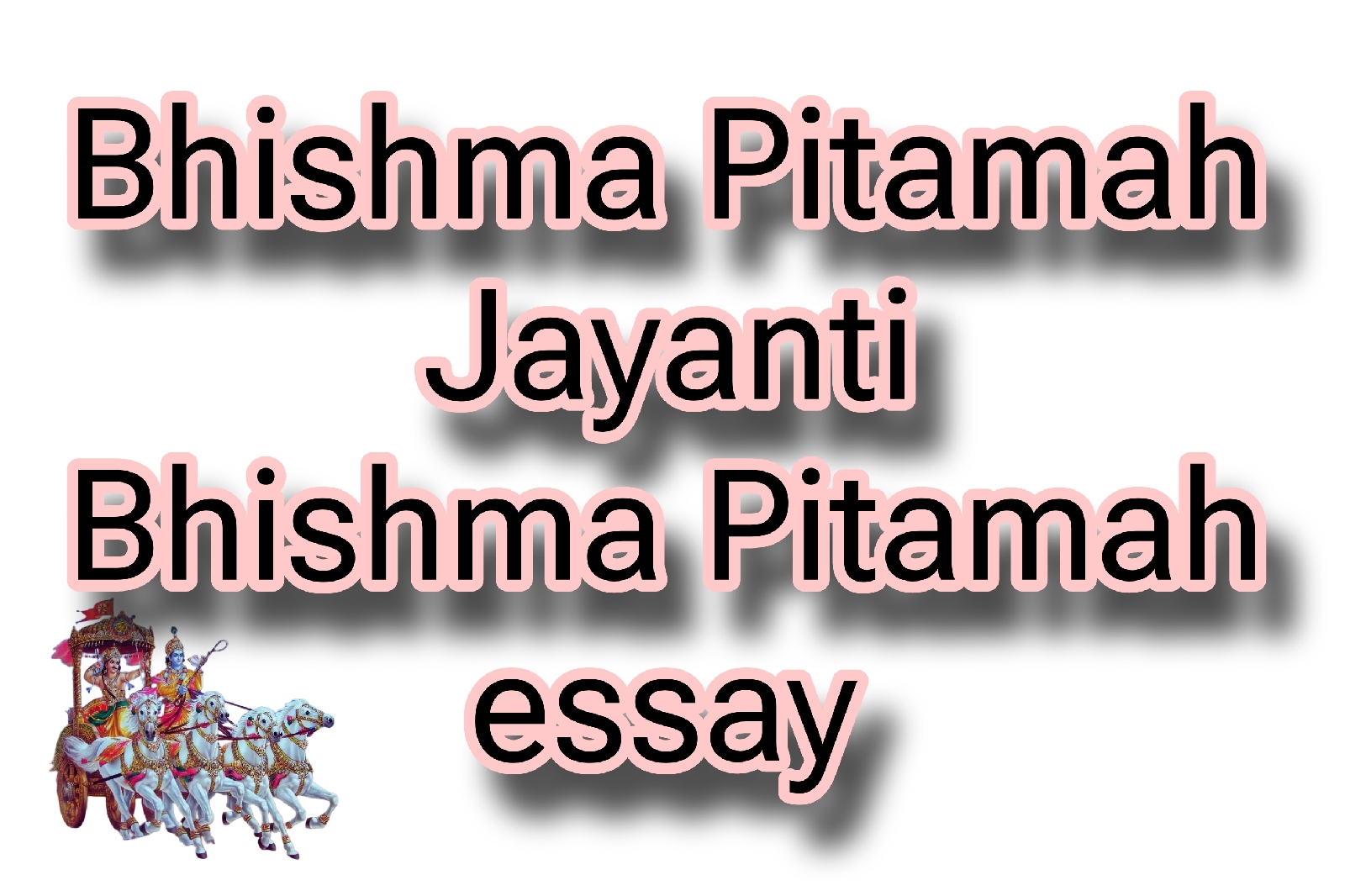Bhishma Pitamah
Bhishma Pitamah Jayanti 2024
Bhishma Pitamah essay
Bhishm Pitamah, also known as Bhishma, is a prominent figure in Hindu mythology and epic literature. He plays an integral role in the Mahabharata, one of the two great Indian epics. This essay will delve into the historical context, key figures, and the impact of Bhishm Pitamah. It will also identify and analyze influential individuals who have contributed to the field of Bhishm Pitamah. Furthermore, it will explore various perspectives, providing a well-reasoned analysis that covers both positive and negative aspects. Lastly, it will consider potential future developments related to Bhishm Pitamah.
To understand Bhishm Pitamah, it is important to grasp the historical context in which he is embedded. The Mahabharata, a vast epic, is believed to have been composed between 400 BCE and 400 CE, though the events it narrates are said to have occurred around 3000 BCE. It is a culmination of centuries of oral tradition, gathering myths, legends, and historical accounts of ancient India. The Mahabharata revolves around the conflict between two factions of the Bharata dynasty, the Kauravas and the Pandavas, for the throne of Hastinapura.
Bhishm Pitamah was born as Devavrata, the son of King Shantanu and the river goddess Ganga. His father's marriage to Ganga eventually led to her departure due to a promise Shantanu made, leaving Devavrata with a deep resolve to serve his family and kingdom. Devavrata's unwavering devotion earned him the title of Bhishma, meaning 'the one who takes a terrible oath.'
Bhishma played a crucial role in the events that unfolded in the Mahabharata. As the hero-grandfather figure, he possessed extraordinary qualities of valor, wisdom, and virtue. He acted as the patriarch and adviser to the Kuru dynasty, offering guidance and judgments. His strength and immortality were granted through a boon, allowing him to choose the time of his death. This made him an immovable force on the battlefield and gave him great influence among the warriors.
Bhishma's impact on the Mahabharata is multi-faceted. Firstly, his adherence to an oath of celibacy ensured the protection of the Kuru dynasty's legacy. He sacrificed his personal happiness and aspirations for the greater good of his family. This act of selflessness and dedication to his principles is one of the defining characteristics of Bhishma's character.
Another significant aspect of Bhishma's impact lies in his role as a teacher and mentor. He imparted profound wisdom to countless individuals, including his grand-nephews, the Kaurava and Pandava princes. His lessons on martial arts, morality, and strategic warfare continue to inspire and contribute to the field of military prowess and ethics in Indian culture.
In analyzing influential individuals who have contributed to the field of Bhishm Pitamah, one cannot overlook the sage Vyasa. Vyasa, considered the author and narrator of the Mahabharata, collaborated with Bhishma to shape and uphold the ethical and cultural values embedded in the epic. Vyasa's contribution was vital in ensuring that the story of the Mahabharata became a treasure trove of historical, moral, and philosophical teachings.
Another influential individual connected to Bhishma is Lord Krishna. Krishna, an avatar of Lord Vishnu, served as a vital ally to the Pandavas in their quest for justice. His guidance and divine interventions provided the Pandavas with the strength and clarity needed to face the challenges posed by the Kauravas. Krishna's teachings and dialogues with Bhishma added depth and complexity to the epic, addressing profound questions on duty, righteousness, and the nature of life.
It is important to examine both the positive and negative aspects associated with Bhishm Pitamah. On one hand, Bhishma's loyalty, righteousness, and self-sacrifice make him an admirable figure. His unswerving dedication to duty and principles serve as a moral compass for generations to come, instilling values such as honor, loyalty, and integrity.
On the other hand, Bhishma's adherence to outdated beliefs and traditions led to his inability to adapt to changing realities. His oath of celibacy denied him the experience of parenthood and limited his perspective on women's roles and rights. This flaw, although a product of his time, presents a negative aspect of his character.
Looking towards potential future developments related to Bhishm Pitamah, it is important to recognize that his legacy continues to shape Indian culture and society. The story of Bhishma has been a source of inspiration for centuries, influencing artists, writers, and filmmakers to explore and reinterpret his character. Future developments could involve revisiting his story with a contemporary lens, examining his strengths and weaknesses in light of evolving societal norms.
In conclusion, Bhishm Pitamah, the legendary figure from the Mahabharata, has left a lasting impact on Indian culture and literature. His character, as depicted in the epic, embodies virtues such as loyalty, wisdom, and sacrifice. His teachings and actions have influenced countless individuals, including the Kaurava and Pandava princes. While Bhishma's firm adherence to his principles and his mentoring role make him an admirable figure, his inability to adapt to changing realities presents a negative aspect of his character. Nonetheless, Bhishm Pitamah's legacy continues to inspire and fascinate, and future developments could involve reimagining his story to resonate with contemporary values and perspectives.
Bhishma Pitamah
Bhishma Pitamah Jayanti 2024
Real name of Bhishma Pitamah
Bhishma Pitamah Jayanti
Bhishma Pitamah Story
story of Bhishma Pitamah
Birth of Bhishma Pitamah
bhishma pitamaha meaning
Bhishma Pitamah today
Bhishma Pitamah History
History of Bhishma Pitamah
History of life of Bhishma Pitamah
Bhishma Pitamah Story in English





